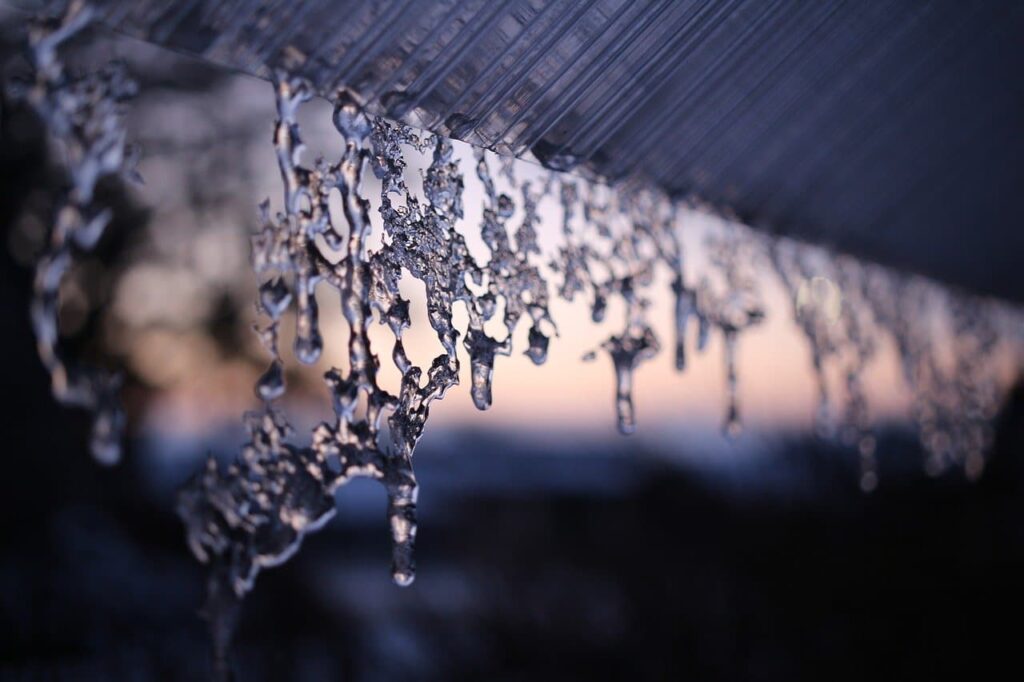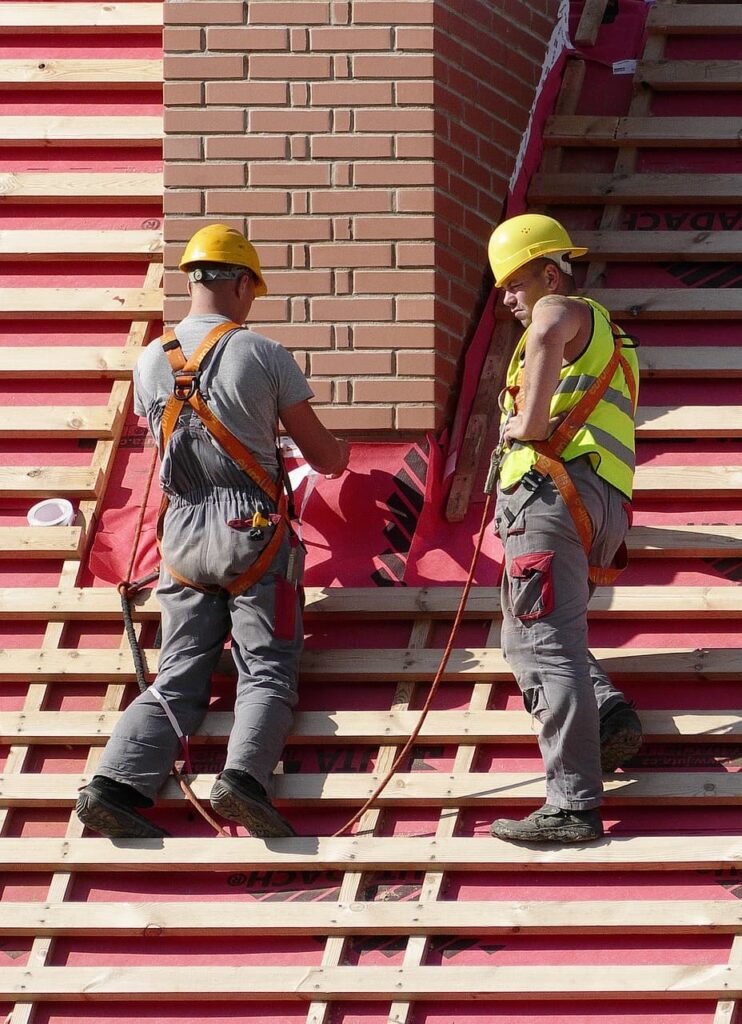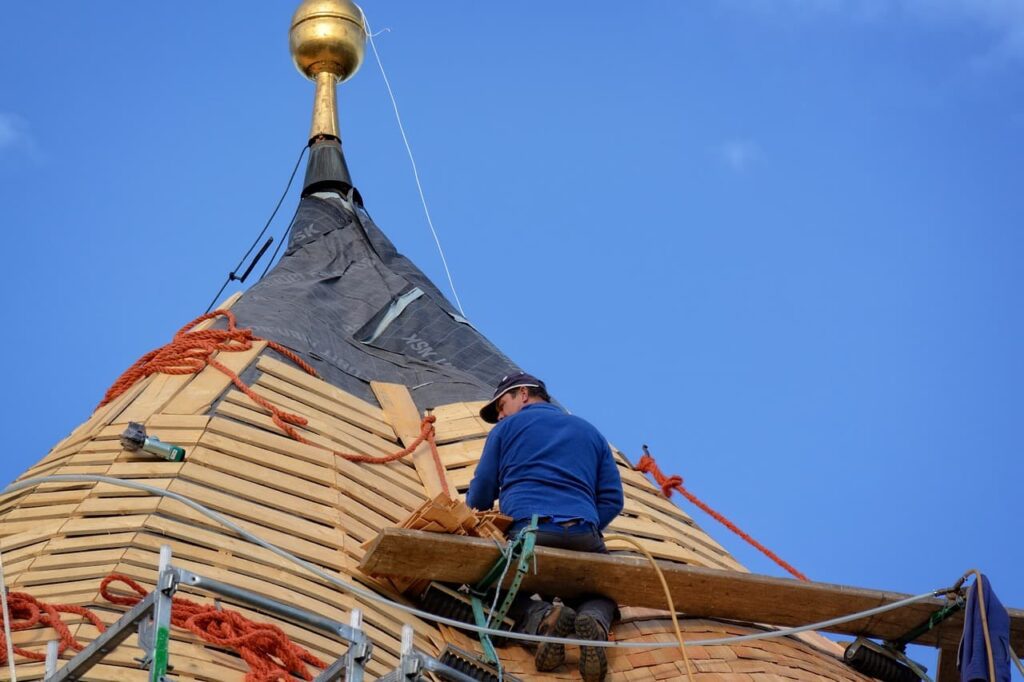Roofing in The Winter: All Questions Answered
Winter roof repair poses the toughest conditions for roofers, especially in regions like Toronto and the Durham region, known for the frigid temperatures, snowfall, and icy climate. As the cold season approaches, homeowners often find themselves with pressing questions about roofing in the winter among these challenging conditions.
There is always the hesitancy to embark on roofing projects during this time. Sometimes, it is because of concerns about how the weather might affect the process, or it could be related to the suitability of roofing materials. In this article, we will address these concerns and provide you with the information you need to make informed decisions about winter roofing in this demanding climate.

Do roofers work in the winter?
Professional roofers work year-round, including in the winter, but its feasibility depends on the specific weather conditions happening at the time. Credible roofers would never put you or themselves in danger by attempting to work on a rooftop that is extremely slippery due to snow and ice, for example.
There might be a couple of weeks where certain roofing projects may be put on hold until temperatures rise and conditions become more favourable. If it is safe enough to do so, then professional roofers can work on your roofs during the wintertime.
It’s important to note that while roofers do work in the winter, the pace of work may vary depending on the severity of the weather. Extreme cold, heavy snowfall or icy conditions can slow down roofing projects, but professional roofers are trained to adapt and take necessary precautions.
What temperature is too cold to put on a roof?
The ideal temperature for roofing work, as per the manufacturer’s installation instructions, is above 40. F (4 C). This is because shingles would crack or break in extremely cold temperatures, not to mention the danger posed by slippery conditions.
Improved technology has led to the production of shingle mats (the layer that holds all the shingle elements together) to stand up to colder temperatures better. Professional roofers can work in temperatures as low as 20 F (-6 C), but below this threshold, roofing materials may become brittle and less pliable, increasing the risk of damage during installation. This, however, does not mean that roofers can work in the cold without taking precautions.
Note that the potential for voided warranty claims increases when the temp drops below 40 F (4 C). Your roofer can provide further advice and guidance on the most appropriate course of action in such cases.
Can I replace or install a new roof in the winter?
So far, you have probably learned a thing or two about roofing in winter, but you might still be wondering whether it’s a good idea to proceed with a winter roofing job. Let’s chop it all up real quick.
If your roof is dry and there’s no rain or snow in the forecast, you can proceed with roofing replacement or installation without much trouble. However, if the installers are working when it’s snowing or raining, the work may be delayed, and you are likely to have problems no matter how experienced they are.
That means you can do roofing in the winter, but it’s up to you to weigh the risks and determine if you should wait, depending on the weather conditions.

Can you shingle in the winter?
Yes, as long as it is within the limits of safety. Professional roofers are trained to handle cold-weather roofing installation. They are aware of the risks involved and know how to take necessary precautions. They also have access to specialized winter roofing materials that can withstand extreme cold temperatures, including modified asphalt shingles with superior temperature resistance capabilities.
Shingle installation is best above 40 F, and as Durham region temperatures can drop much lower, shingle installation below this threshold requires extra caution. Your roofer should ensure that they have proper safety gear and tools to reduce the potential risks posed by cold weather conditions.
What roofing material can be used in winter?
Certain roofing materials are better suited for winter conditions in Toronto and the Durham Region. Metal roofing, asphalt shingles, and synthetic materials like TPO or PVC are resilient in cold weather and provide effective seals when installed correctly.
- Metal and slate hold up best against extreme temperatures but cost more.
- Asphalt shingles are cheaper and still provide good protection from the elements.
- Synthetic materials like TPO or PVC are durable, lightweight, and require little maintenance.

What roofing material can’t be used in the winter?
Rubber roofs, wood shingles, and other organic materials are more prone to frost damage in extreme cold temperatures, so they are not recommended for winter roofing. Rubber roofs are difficult to install in the cold because they become stiff and brittle in frigid temperatures. Wood shingles need time to settle into place after installation, and this is a process that requires warmer weather. As such, these materials should not be used for roofing in the winter.
Materials like clay or concrete tiles and some natural slates are less suitable for winter installations. This is because they are prone to breakage in cold weather and require more time to be properly installed.
Pros and Cons of roofing in the winter
Winter roofing can be a challenge, but it also has its advantages. On the plus side, winter is typically a slow season for roofers, and you can often find better deals on materials, labour rates, and installation services. The downside is that cold weather may also affect the performance of roofing products and increase the risks associated with working in such conditions.
Pros:
- Scheduling flexibility: Roofing companies may have more availability during the off-season.
- Potential cost savings: Off-season installations may come with discounts.
- Immediate protection: Replacing a roof in the winter ensures your home remains protected during the season.
Cons:
- Safety risks: Cold weather poses additional safety considerations for the roofers.
- Material limitations: Certain materials are not suitable for installation during winter months.
- Less accurate measurements: Freezing temperatures may cause inaccurate measurements or installation mistakes.
- Large crew: Workers need to take advantage of any dry weather spells
Why you need skilled roofers with years of experience in roof repair in the winter
Skilled roofers with experience in winter roofing understand the critical nuances of working in extreme cold. They can efficiently handle materials, ensure proper seals, and maintain safety protocols in harsh conditions. Their expertise ensures that your winter roofing project is executed correctly, safeguarding your home against the winter elements effectively. Hiring seasoned professionals is paramount for a successful and enduring roof installation or repair during the challenging winter months.
